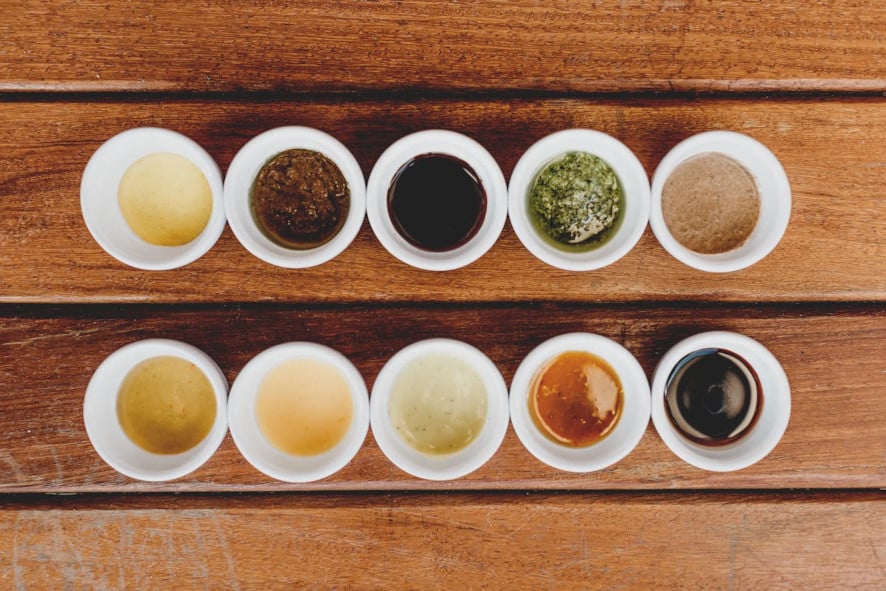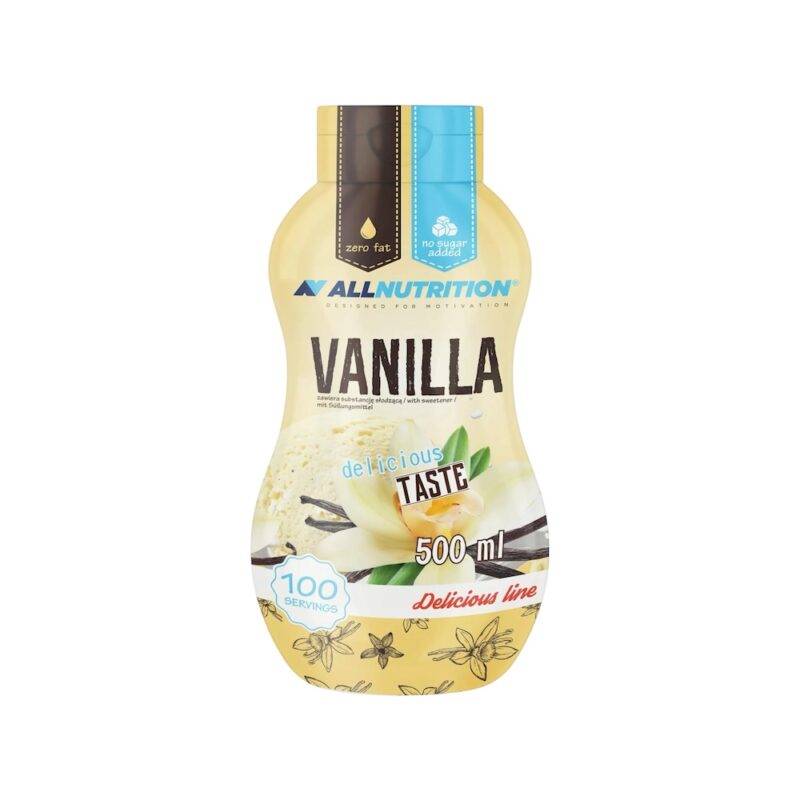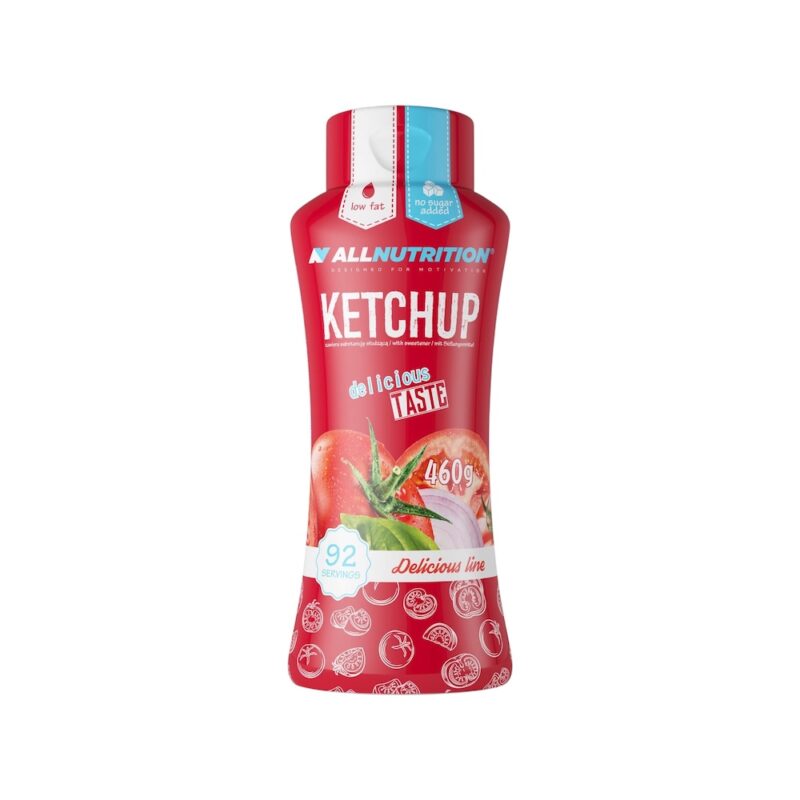Imagine relishing a vibrant meal bursting with flavour without the extra calories weighing you down. Low-calorie sauces have become a culinary hero for those seeking to enhance their dishes healthily and deliciously. Whether you’re drizzling a zesty tzatziki over perfectly grilled vegetables, adding a fresh splash of salsa to lean proteins, or tossing a light vinaigrette onto your favourite salad, these versatile sauces can transform everyday meals into nutritious delights. From top picks tailored for every meal to easy homemade recipes and insightful tips on pairing and storage, embracing low-calorie sauces allows you to savour taste and maintain a balanced diet effortlessly. Dive into the world of healthier dining and discover how the right sauces can make all the difference.
- Creative Uses for Low-Calorie Sauces
- Top Low-Calorie Sauces for Every Meal
- Nutritional Benefits of Low-Calorie Sauces
- Pairing Low-Calorie Sauces with Different Diets
- Tips for Storing and Preserving Low-Calorie Sauces
Creative Uses for Low-Calorie Sauces
Elevate your culinary game by integrating low-calorie sauces into your daily meals. Start by drizzling tzatziki over grilled vegetables to add a creamy texture without the extra calories. This not only enhances the flavour but also keeps your meals nutritious and satisfying.
Next, consider using tomato salsa on your lean proteins such as chicken or fish. This vibrant addition brings a zesty kick that transforms a simple dish into something extraordinary. Additionally, a splash of vinaigrette can make your salads pop, providing that essential tang while maintaining a low-calorie profile.
These innovative applications of low-calorie sauces demonstrate that healthy eating doesn’t have to be bland. By experimenting with different sauces, you can keep your meals exciting and aligned with your dietary goals.
Top Low-Calorie Sauces for Every Meal
Transforming your meals without piling on the calories is easier than you think. Whether you’re kickstarting your day or winding down with a late-night snack, the right low-calorie sauce can make all the difference. Dive into our curated selection that doesn’t just taste amazing but also keeps your calorie count in check.
From tangy dressings that elevate your lunch salads to zesty dips perfect for your evening snacks, we’ve got you covered. These sauces prove that you don’t have to sacrifice flavor for a slimmer waistline. Let’s break it down with some real deal options that you can actually find in your local store.
Meal Type | Sauce Name | Flavour Profile | Calories per Serving |
|---|---|---|---|
Breakfast | Light Hollandaise | Rich and creamy with a hint of lemon | 45 kcal per tbsp |
Lunch | Low-Fat Caesar Dressing | Classic Caesar tang with reduced fat | 70 kcal per serving |
Dinner | Tomato Basil Sauce | Fresh and robust with garden herbs | 25 kcal per tbsp |
Snacks | Greek Yogurt Dip | Creamy and tangy, perfect for veggies | 30 kcal per serving |
Each of these low-calorie sauces offers a unique way to enhance your dishes without the guilt. Whether you’re looking to add some zest to your morning eggs or need a flavorful companion for your afternoon crisps, these options ensure your taste buds are satisfied while keeping your calorie intake on point.
Nutritional Benefits of Low-Calorie Sauces
Choosing low-calorie sauces is a game-changer for anyone looking to indulge without guilt. By opting for these healthier alternatives, you can significantly reduce your sugar and fat intake, which is crucial for maintaining a balanced diet. Experts advise that swapping traditional high-calorie sauces with low-calorie versions can aid in weight management and improve overall health.
Moreover, low-calorie sauces often come enriched with nutritional benefits beyond just fewer calories. They can include essential vitamins and minerals that support bodily functions and enhance your meals without compromising on flavour. Here’s a snapshot of the key advantages:
- Lower Sugar Content: Reduces the risk of blood sugar spikes and supports metabolic health.
- Reduced Fat: Helps in lowering cholesterol levels and promotes heart health.
- Fewer Calories: Facilitates weight loss and helps maintain a healthy weight.
- Enhanced Nutrient Profile: Some sauces are fortified with vitamins like Vitamin C and antioxidants.
For instance, tomato-based sauces often contain lycopene, a powerful antioxidant, while herb-infused dressings can provide a burst of flavour with minimal calories. By integrating these sauces into your meals, you not only enhance taste but also take a significant step towards a healthier lifestyle.
Pairing Low-Calorie Sauces with Different Diets
Finding the perfect low-calorie sauce that aligns with your dietary preferences doesn’t have to be a hassle. Whether you’re embracing a vegan lifestyle, adhering to gluten-free requirements, or following a keto plan, there’s a sauce that fits the bill without sabotaging your goals.
Diet Type | Suitable Low-Calorie Sauces | Why It Works |
|---|---|---|
Vegan |
| These sauces are plant-based, rich in flavour, and free from animal products, making them perfect for vegan diets. |
Gluten-Free |
| They are naturally free from gluten, ensuring safety for those with gluten sensitivities or celiac disease. |
Keto |
| Low in carbohydrates and high in healthy fats, these sauces complement the high-fat requirements of a keto diet. |
By selecting low-calorie sauces that are tailored to your specific dietary needs, you can effortlessly enhance your meals without the extra calories. Remember to always check the ingredient list to ensure compatibility with your diet, and don’t be afraid to experiment with different flavours to keep your meals exciting and satisfying.
Tips for Storing and Preserving Low-Calorie Sauces
Maintaining the freshness and flavour of your low-calorie sauces starts with proper storage. Always keep sauces in airtight containers to minimize exposure to air, which can lead to spoilage. For store-bought varieties, refrigeration is usually required after opening, and they typically remain good for up to 2 weeks. Be sure to check the shelf life on the label to ensure optimal quality. When it comes to homemade sauces, they should be cooled completely before sealing and refrigerated, as they lack the preservatives found in commercial options.
Handling homemade and store-bought sauces requires different approaches to maximize their lifespan. Homemade sauces often have a shorter shelf life due to the absence of preservatives, so it’s crucial to use them within a week and always label them with the preparation date. On the other hand, store-bought sauces are formulated for longer storage, but once opened, they should be treated similarly to homemade versions by keeping them tightly sealed and refrigerated. Additionally, always use clean utensils when serving to prevent contamination and extend the sauce’s usability.
Frequently Asked Questions
Can low-calorie sauces be used in cooking, or are they only suitable as dressings?
Low-calorie sauces are versatile and can be used both as dressings and as ingredients in cooking. They can enhance the flavour of soups, stews, marinades, and even baked dishes without adding extra calories. Experimenting with different sauces can help you discover new flavour combinations for a variety of meals.
How long can homemade low-calorie sauces be stored in the refrigerator?
Homemade low-calorie sauces typically last between one to two weeks when stored in an airtight container in the refrigerator. It’s important to label them with the preparation date and always check for any signs of spoilage before use. For longer storage, consider freezing portions of the sauce.
Are there any low-calorie sauces that add significant protein to a meal?
Yes, some low-calorie sauces are designed to be high in protein. For example, Greek yoghurt-based sauces or those incorporating legumes like hummus can add a good protein boost to your meals. These sauces not only contribute to your protein intake but also enhance the overall flavour without many extra calories.
What are some tips for making low-calorie sauces tastier without adding calories?
To enhance the flavour of low-calorie sauces without increasing the calorie content, consider using fresh herbs, spices, citrus zest, and vinegar. Incorporating ingredients like garlic, ginger, and chilli can add depth and complexity to your sauces. Additionally, roasting vegetables before blending them into a sauce can naturally intensify their flavours.
Can low-calorie sauces be incorporated into meal prepping, and how?
Absolutely, low-calorie sauces are excellent for meal prepping as they can add flavour and variety to your meals throughout the week. Prepare batches of your favourite sauces in advance and portion them into individual containers. This makes it easy to add a quick drizzle or dip to your prepped meals, ensuring you stay on track with your dietary goals while keeping your meals interesting.



